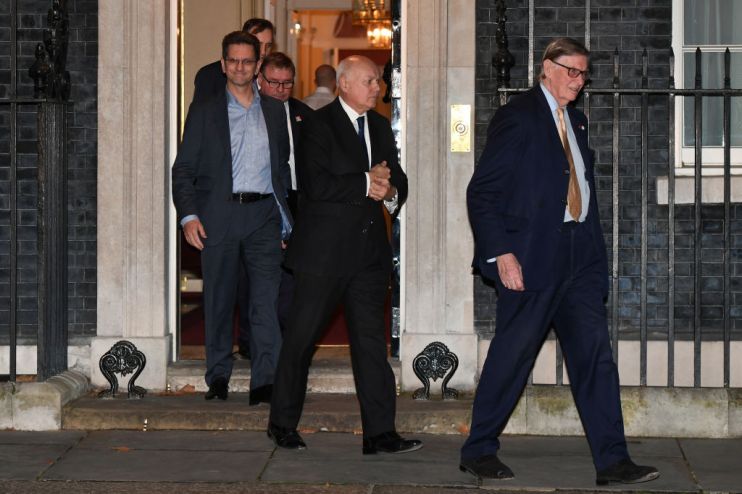Brexit deal agreed in Brussels – what happens next?

Boris Johnson has secured a last-minute Brexit deal with the European Union with just hours before the final European Council begins.
But just because the Prime Minister has struck a deal with Brussels, there is no guarantee that the UK will still be leaving the EU on 31st October – here’s what could happen next.
Will there be a Saturday sitting?
MPs are debating this right now, and a vote will take place later today. The government has made it clear that it believes MPs should vote for the sitting – to enable the deal to be debated in time for the deadline set by the Benn Act (also known as the Surrender Act).
The government has suggested both houses sit from 9:30am to 2pm – it will be difficult for MPs to justify not voting for that extra time, given how much noise was made about parliamentarians being silenced by the Prime Minister’s prorogation, which was subsequently ruled unlawful by the Supreme Court.
What will they vote on this Saturday?
Shortly after agreeing the deal with Jean-Claude Juncker this morning the government made the new Withdrawal Agreement and Political Declaration available. The legal text – which is what all MPs are calling for – is due to be published shortly. It will then be scrutinised and debated, ahead of a vote.
Labour has already said they will vote against the deal, with leader Jeremy Corbyn saying the agreement should go to a second referendum. It is thought the party will seek to amend the vote to force a public vote on the final terms.
What will the DUP do?
The Democratic Unionist Party, currently the Conservatives’ confidence and supply partners, have said they do not support the deal “as things stand”.
But the government hope is that the 10 MPs will “fall into line”. Either way, the sense is that they have run out of road, not least because the Prime Minister has no majority even with the partnership in place.
What will the ERG do?
Chair of the Eurosceptics, sometimes called the Spartans, Steve Baker has said he won’t back anything without the legal text. However he, along with a number of others including Mark Francois and Bill Cash, left Number 10 looking happy last night.
Colleague Andrea Jenkyns has signalled that she is willing to back it. She tweeted: “Boris deal sounds better than the WA. End free movement, end ECJ supremacy over UK law, backstop ditched, & can do free trade agreements. I want to read the detail before making up my mind. But well done Boris for getting this far & doing what others said was impossible.”
Leader of the house and arch-Eurosceptic Jacob Rees-Mogg has been representing government from the frontbench this morning, sending a strong message to any would-be rebels that he supports both the deal and the Prime Minister.
What will pro-Remain Conservatives do?
Many such Remainers are currently sitting as independent MPs. Some of them have said they will not be seeking re-election, meaning the most ardent Remainers – Ken Clarke, for example – will be able to vote with their conscience.
But others are hoping to regain the whip, and are now expecting overtures to be made by the whips’ office about how to return to the fold.
If they back the meaningful vote on Saturday, they are likely to be welcomed back – keeping their career on track. The question is whether they believe this deal is something they can support, but given that many of them backed Theresa May’s original deal, that is not unlikely.
So will the Prime Minister get his deal – and will we leave on 31 October?
Numbers are very tight, and the Prime Minister needs 320 MPs to back the deal.
The government currently has a majority of minus-43, after expelling more than 20 Tories and with further resignations. To put that another way, he currently commands 259 Conservative MPs who can be whipped to vote with the government. But who else could he look to?
The so-called Gaukeward Squad is made up of 19 Remain MPs – some of whom have already said will step down at the next election, and cannot be relied upon to back the deal, although some who will support any efforts to avoid a no deal.
The ERG carries 28 votes, while the DUP carries 10. In the past they have voted in unison – but so far it does appear that might not be the case this time around.
Labour rebels are thin on the ground – five rebelled to vote with Theresa May last time around. But the MPs for a Deal group headed by Stephen Kinnock reckons on around a further 15 MPs which could potentially back Johnson – so far Kinnock and co have not commented.
Main image: Getty